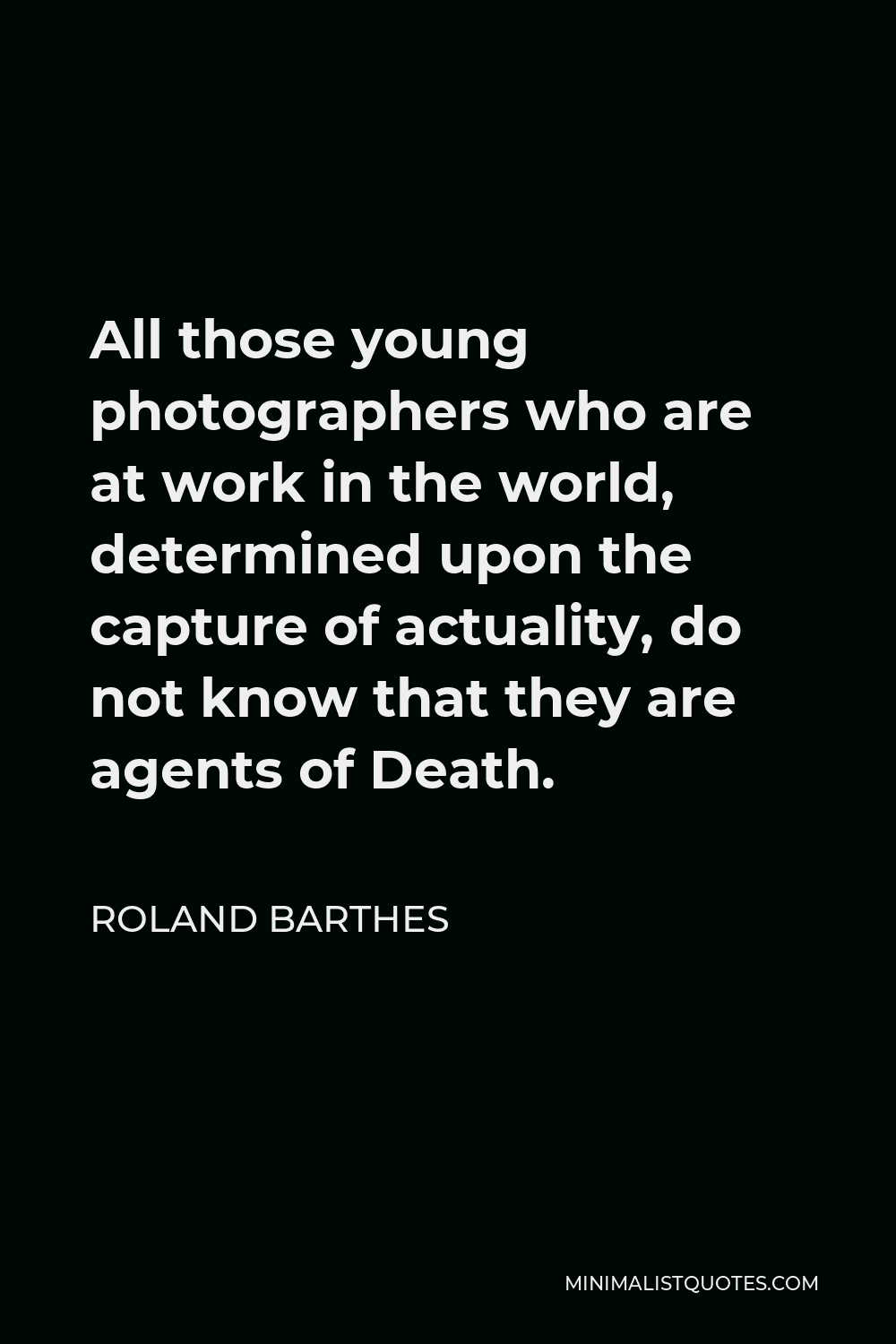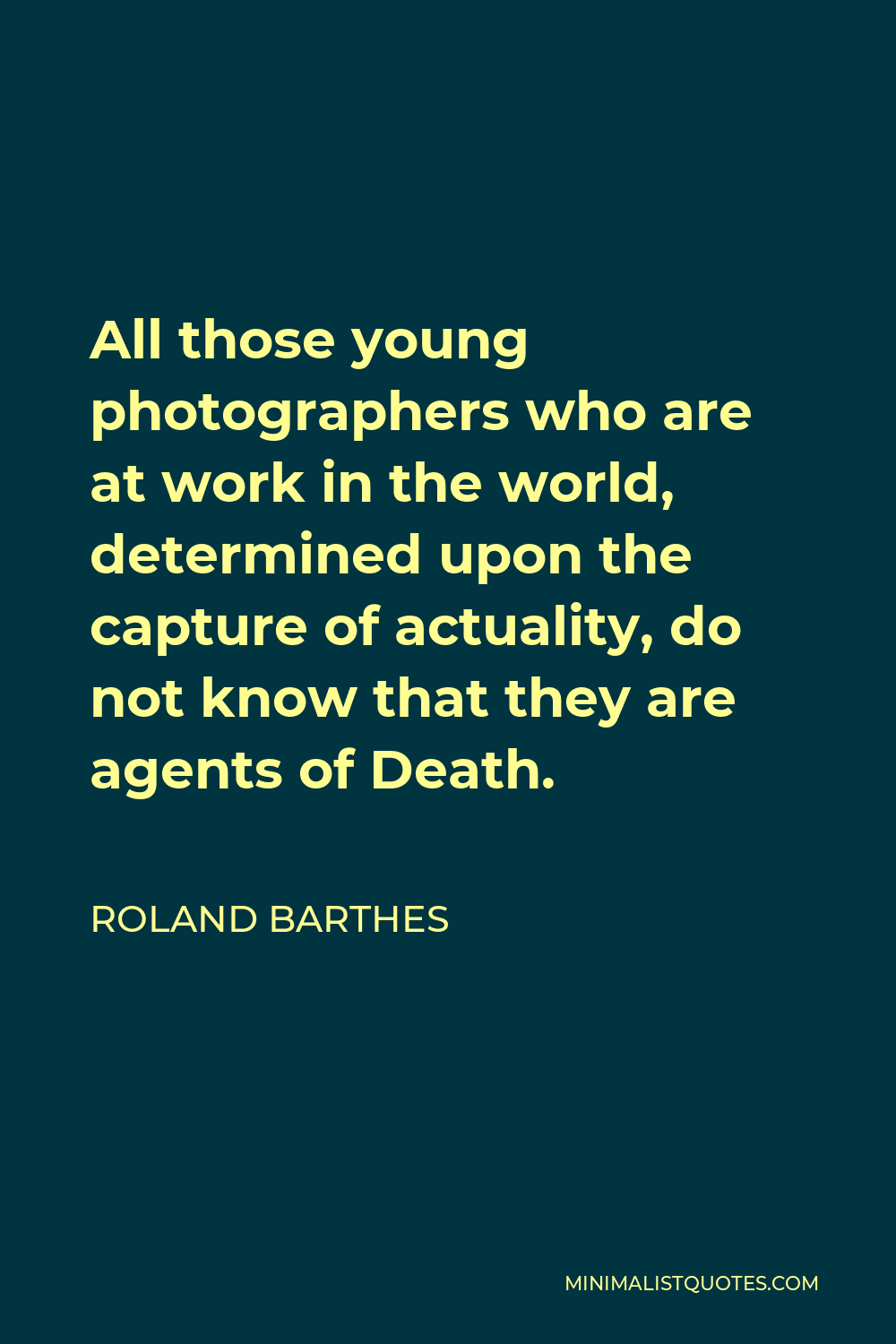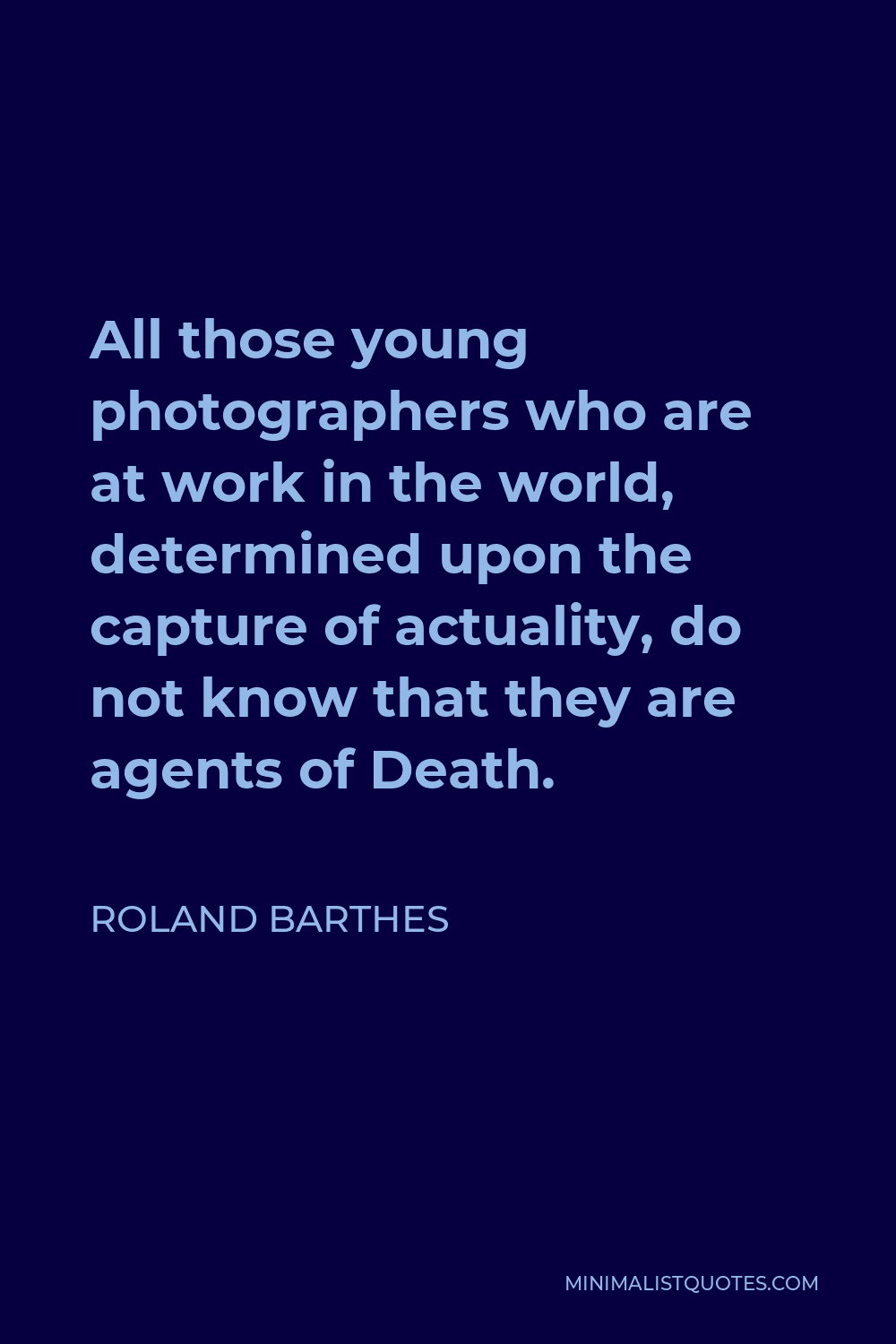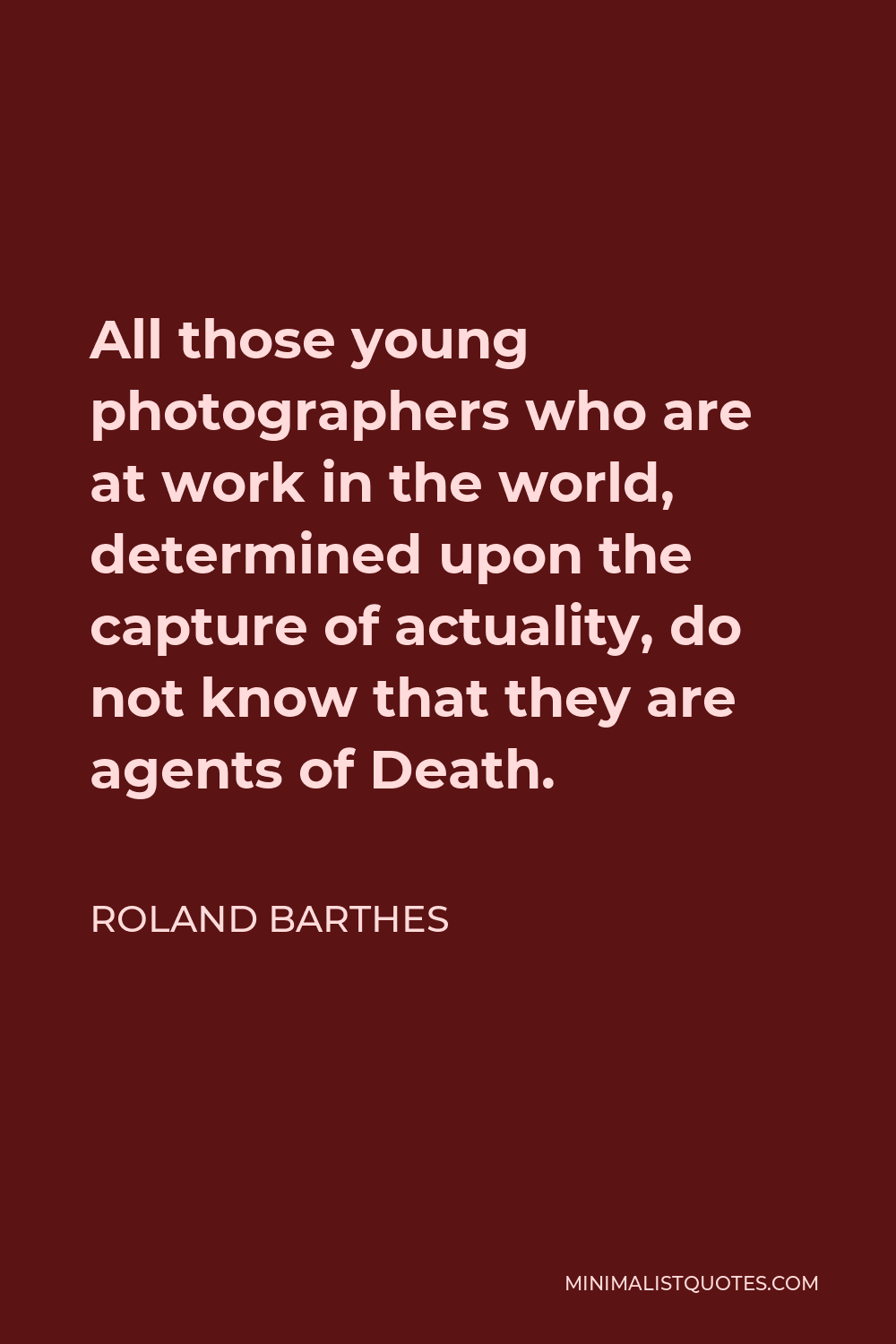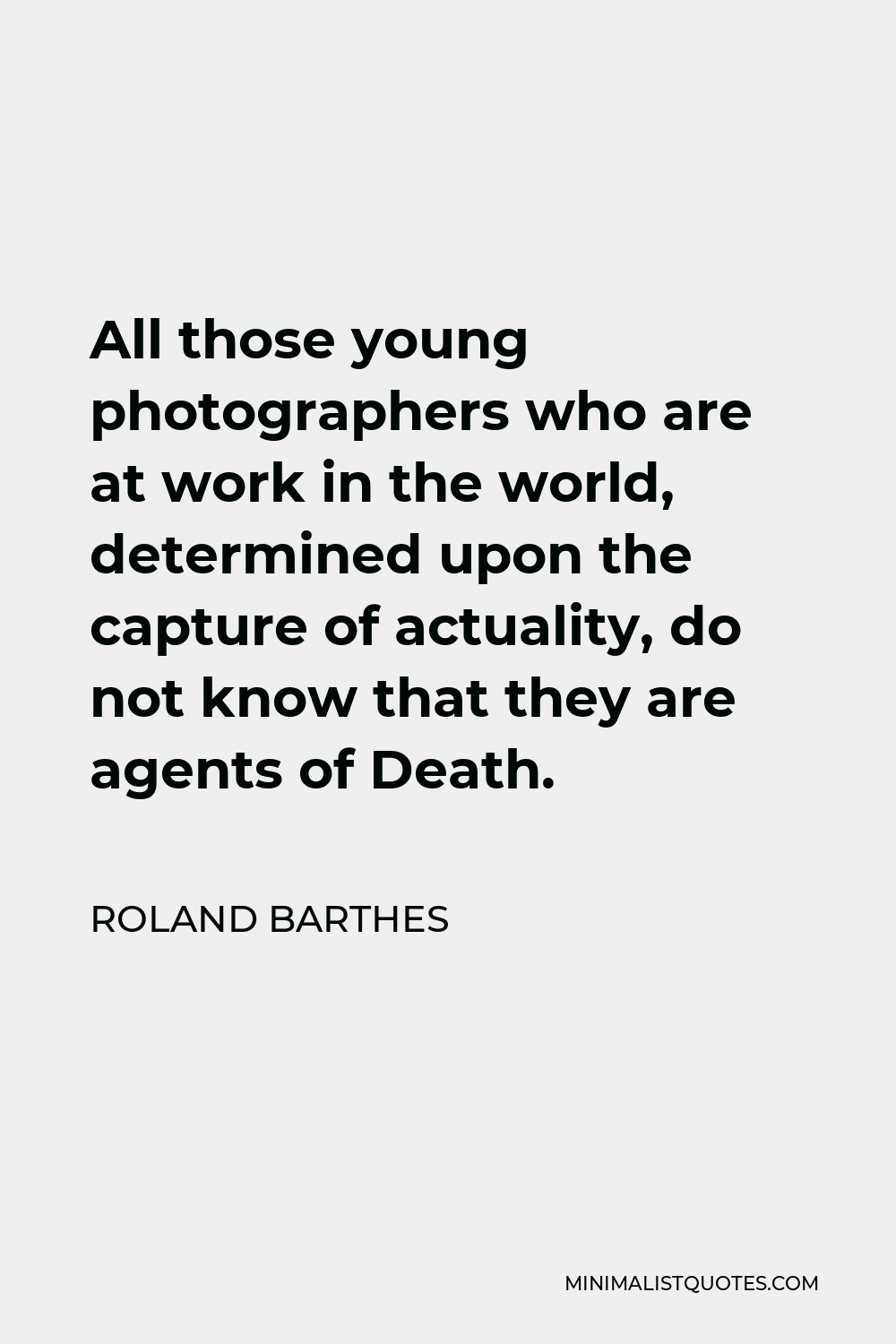Who speaks is not who writes, and who writes is not who is.
ROLAND BARTHESAll those young photographers who are at work in the world, determined upon the capture of actuality, do not know that they are agents of Death.
More Roland Barthes Quotes
-







-





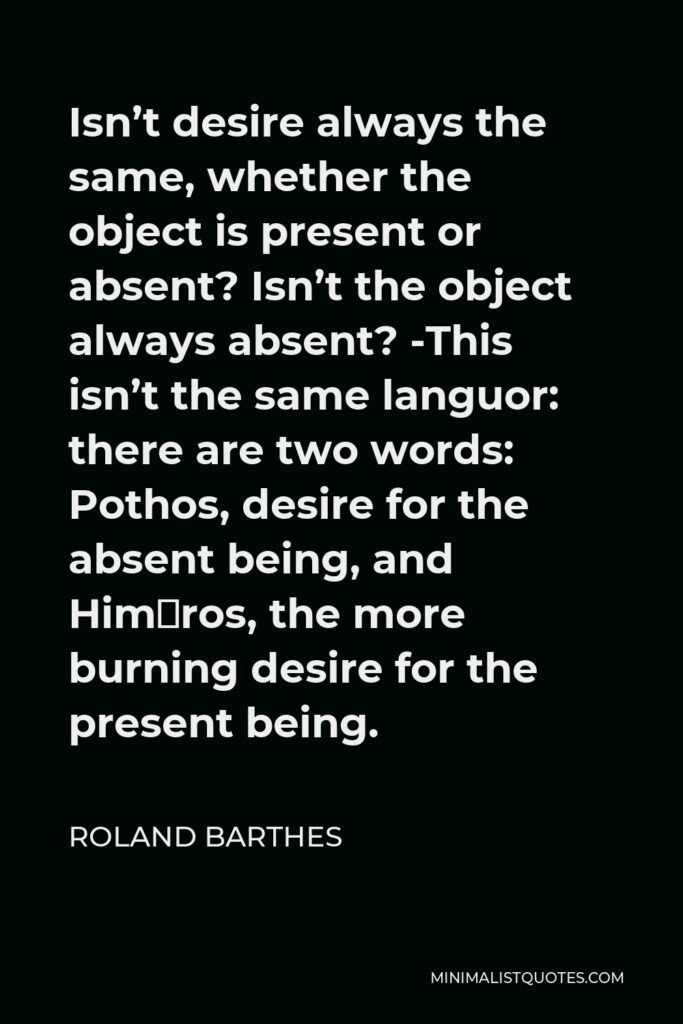

Isn’t desire always the same, whether the object is present or absent? Isn’t the object always absent? -This isn’t the same languor: there are two words: Pothos, desire for the absent being, and Himéros, the more burning desire for the present being.
ROLAND BARTHES -







The best principals are not heroes; they are hero makers.
ROLAND BARTHES -





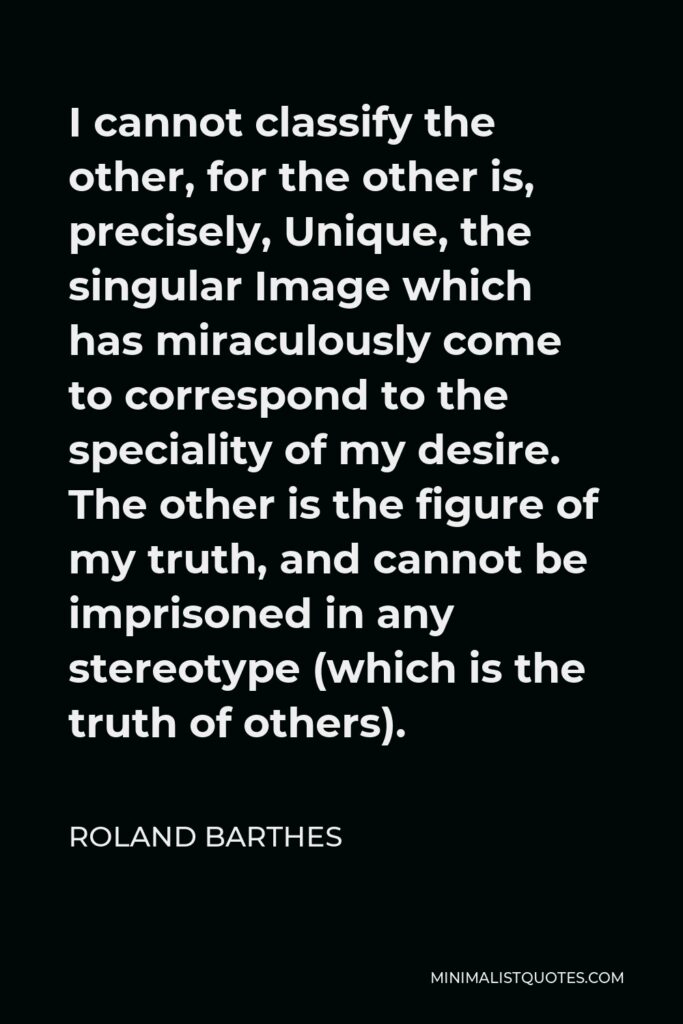

I cannot classify the other, for the other is, precisely, Unique, the singular Image which has miraculously come to correspond to the speciality of my desire. The other is the figure of my truth, and cannot be imprisoned in any stereotype (which is the truth of others).
ROLAND BARTHES -







As Spectator I wanted to explore photography not as a question (a theme) but as a wound.
ROLAND BARTHES -





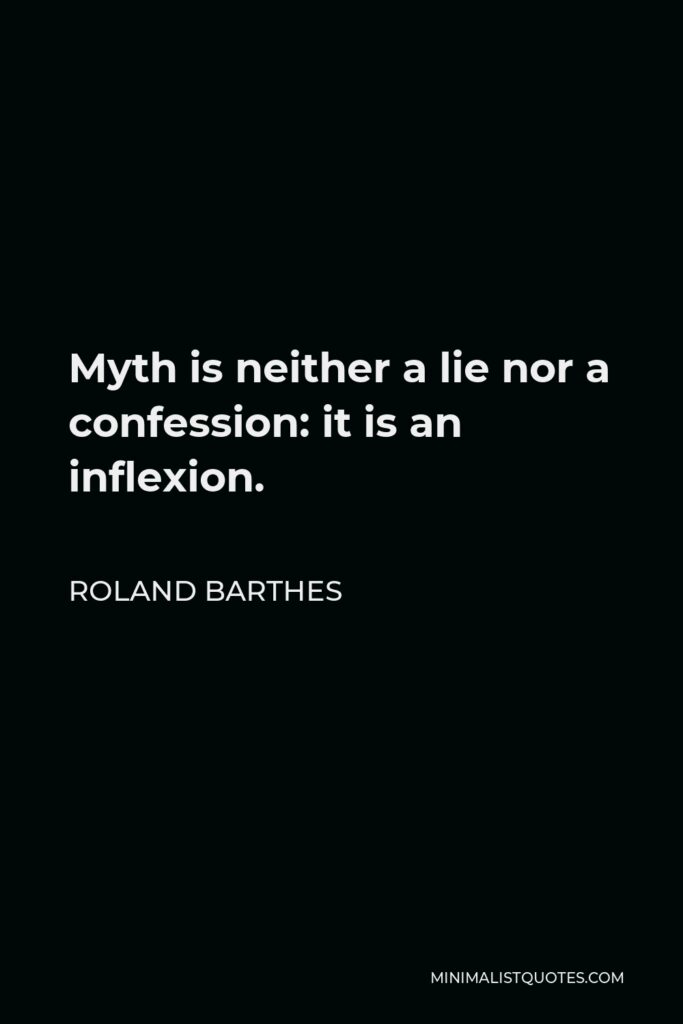

Myth is neither a lie nor a confession: it is an inflexion.
ROLAND BARTHES -





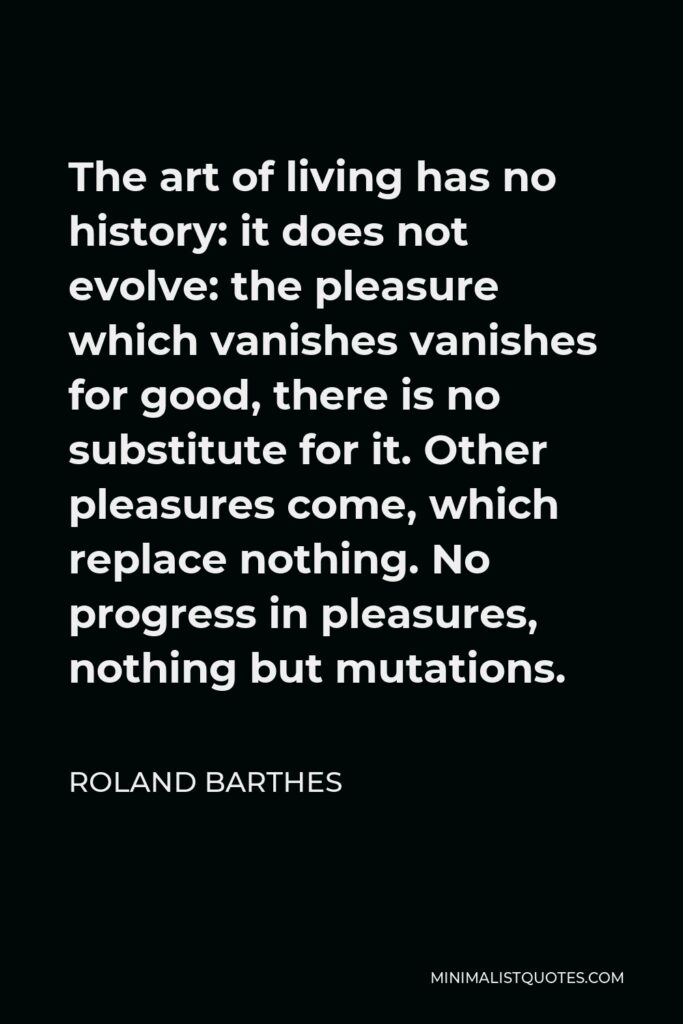

The art of living has no history: it does not evolve: the pleasure which vanishes vanishes for good, there is no substitute for it. Other pleasures come, which replace nothing. No progress in pleasures, nothing but mutations.
ROLAND BARTHES -





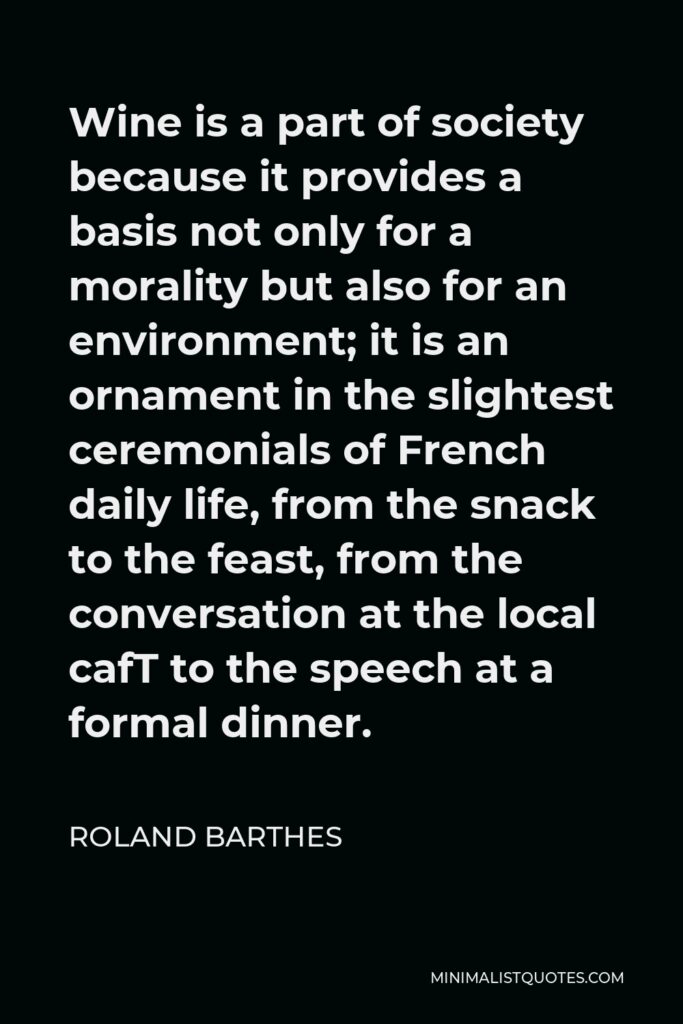

Wine is a part of society because it provides a basis not only for a morality but also for an environment; it is an ornament in the slightest ceremonials of French daily life, from the snack to the feast, from the conversation at the local cafT to the speech at a formal dinner.
ROLAND BARTHES -





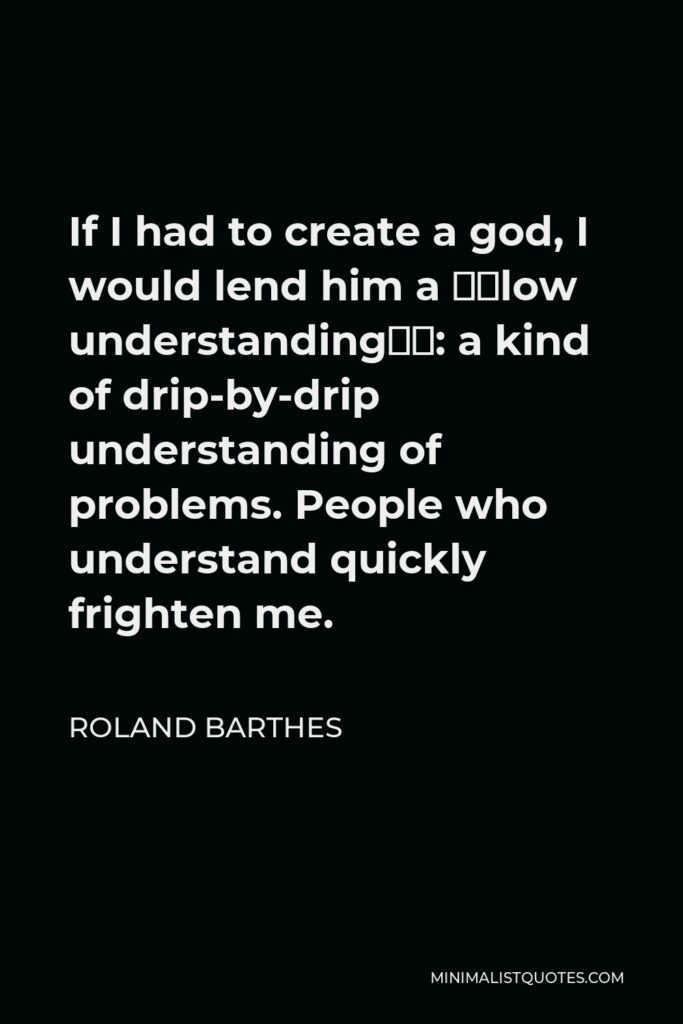

If I had to create a god, I would lend him a “slow understanding”: a kind of drip-by-drip understanding of problems. People who understand quickly frighten me.
ROLAND BARTHES -





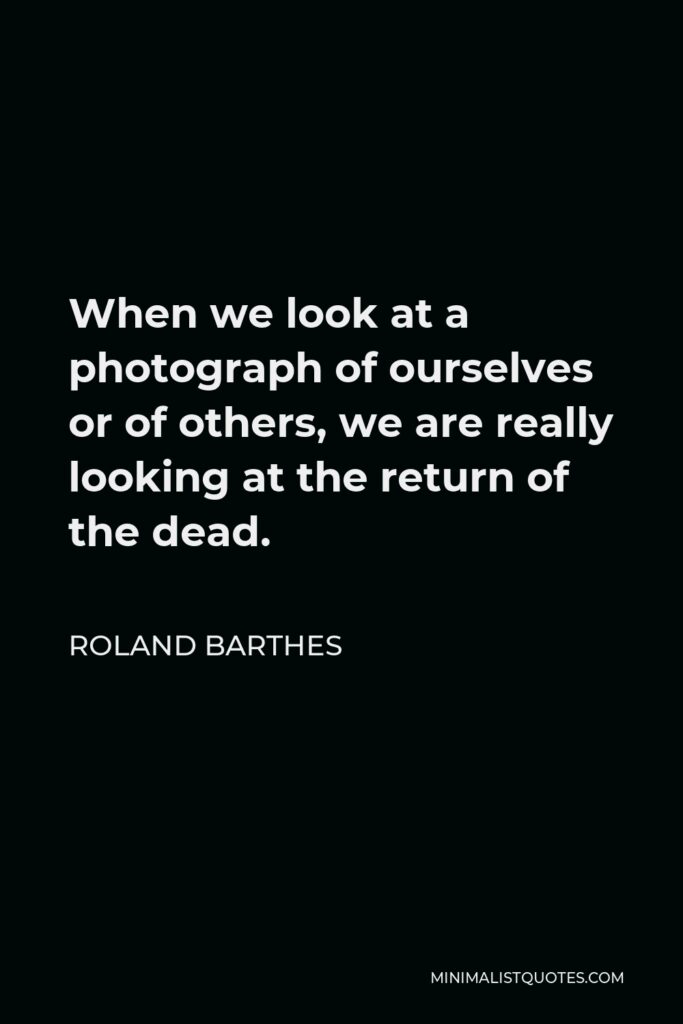

When we look at a photograph of ourselves or of others, we are really looking at the return of the dead.
ROLAND BARTHES -





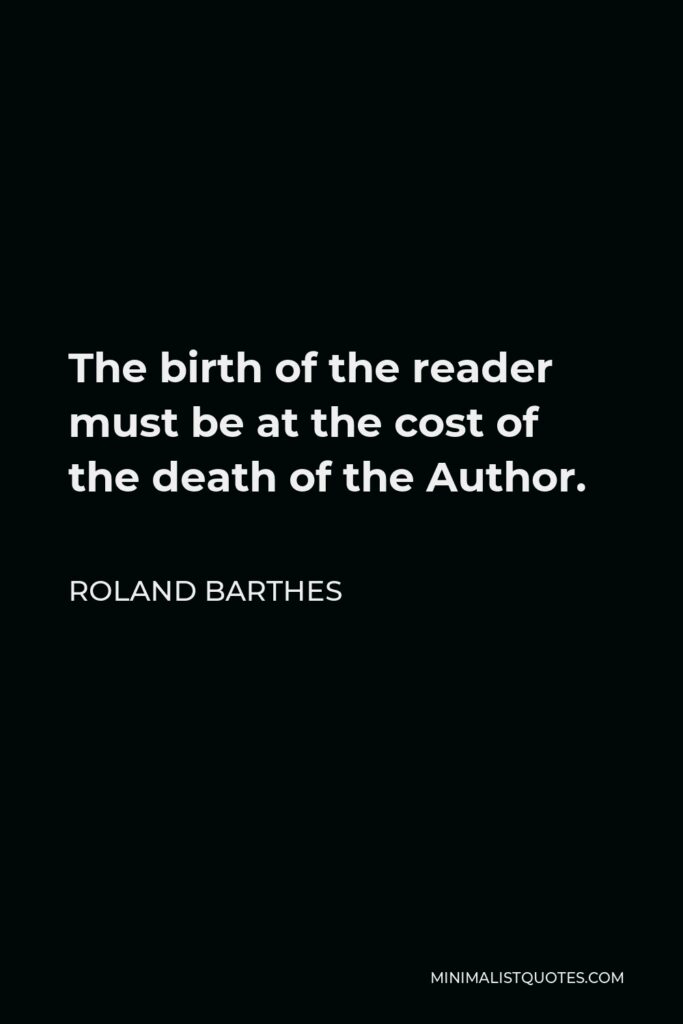

The birth of the reader must be at the cost of the death of the Author.
ROLAND BARTHES -





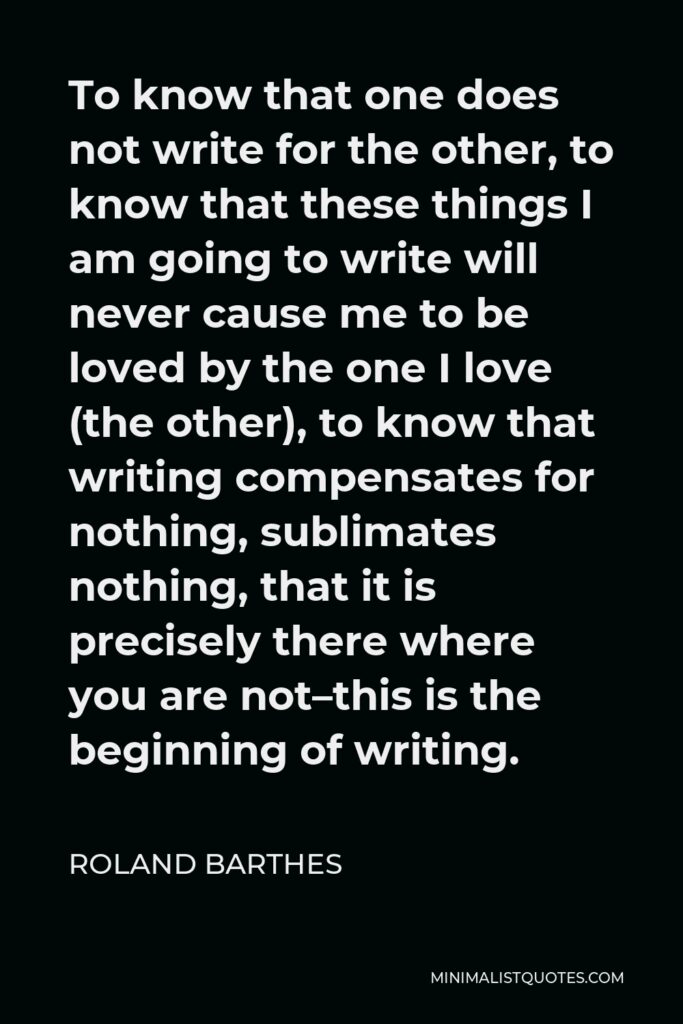

To know that one does not write for the other, to know that these things I am going to write will never cause me to be loved by the one I love (the other), to know that writing compensates for nothing, sublimates nothing, that it is precisely there where you are not–this is the beginning of writing.
ROLAND BARTHES -





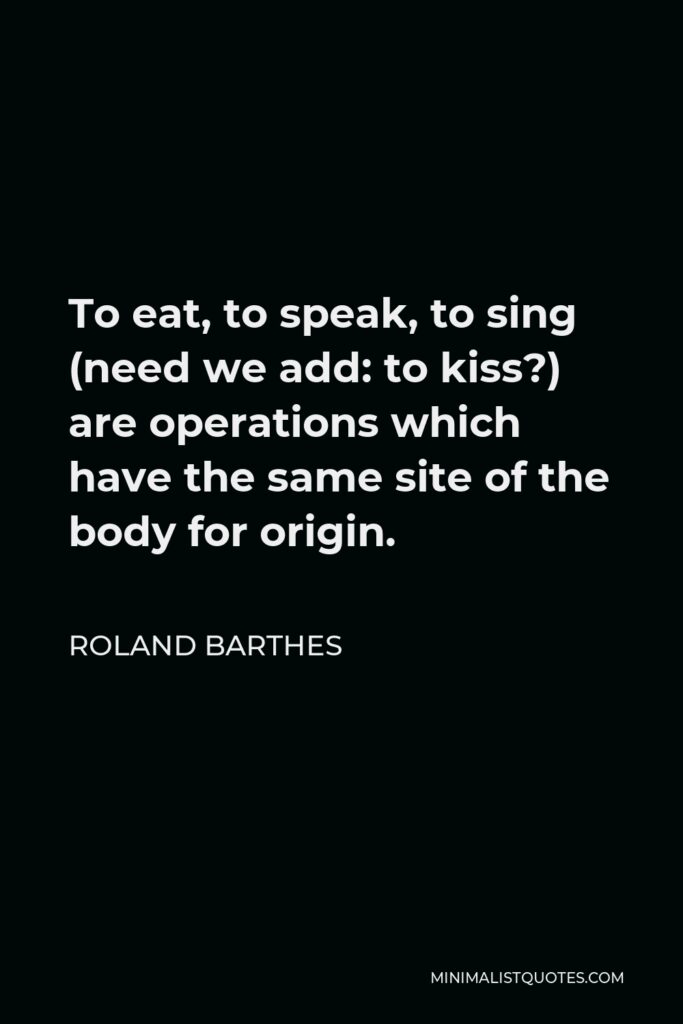

To eat, to speak, to sing (need we add: to kiss?) are operations which have the same site of the body for origin.
ROLAND BARTHES -





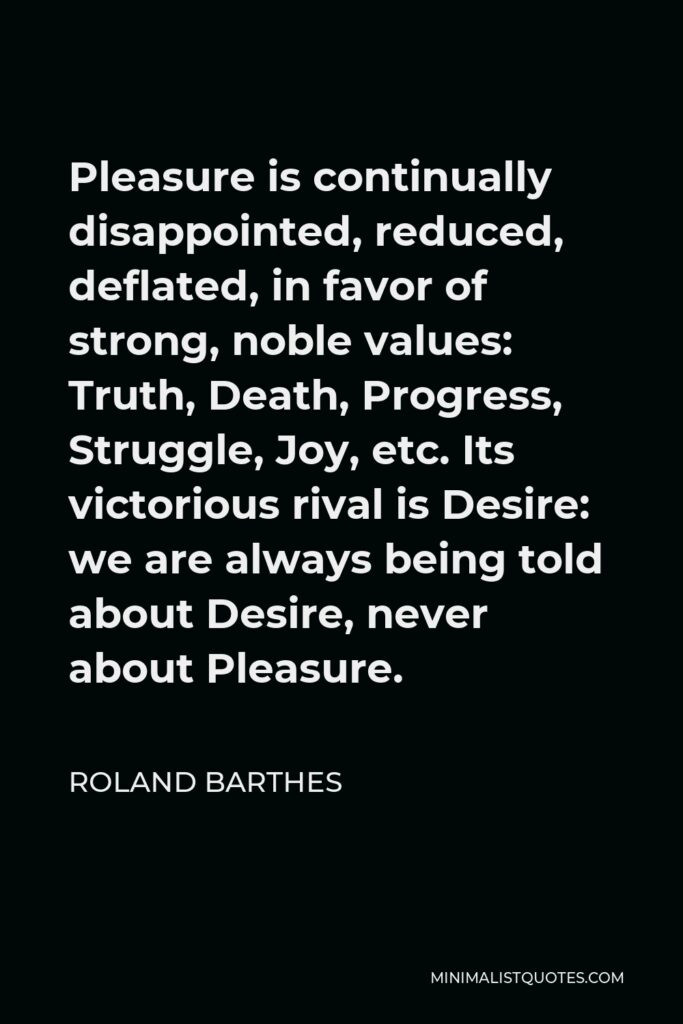

Pleasure is continually disappointed, reduced, deflated, in favor of strong, noble values: Truth, Death, Progress, Struggle, Joy, etc. Its victorious rival is Desire: we are always being told about Desire, never about Pleasure.
ROLAND BARTHES -





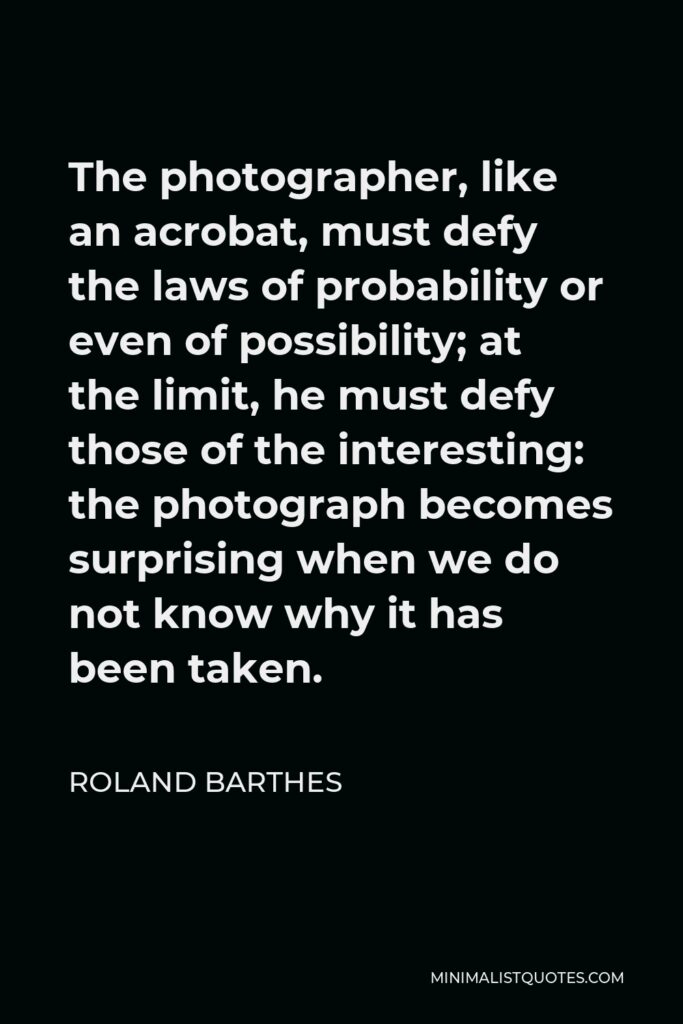

The photographer, like an acrobat, must defy the laws of probability or even of possibility; at the limit, he must defy those of the interesting: the photograph becomes surprising when we do not know why it has been taken.
ROLAND BARTHES -





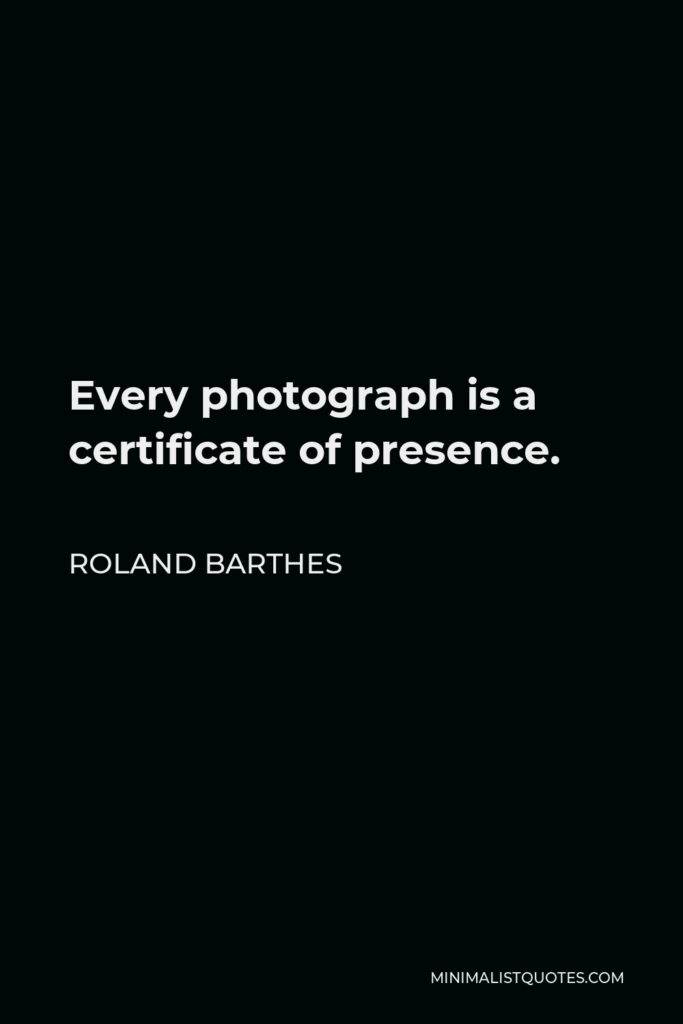

Every photograph is a certificate of presence.
ROLAND BARTHES
